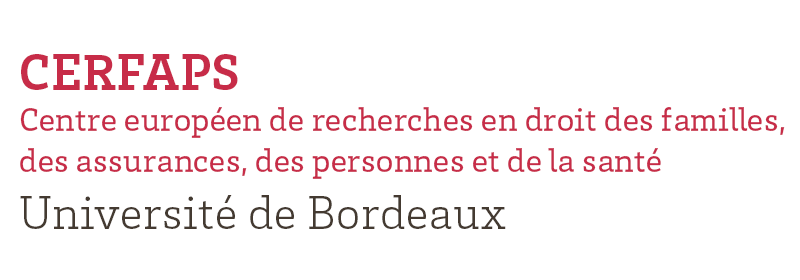L'enfant à particularités
Marie Douris.

- Thèse Droit, dactyl., Lyon, 2006, xxx p.
- Soutenue en 2006
- Jury : Jacqueline Rubellin-Devichi, université Jean-Moulin Lyon 3, directrice de recherches
- Mention
Résumé / Abstract
Dans la diversité des adultes en devenir, comment le droit peut-il considérer la spécificité de certains enfants et assurer une protection et une éducation adaptée à leur intérêt ? L'égalité juridique entre les individus permet-elle une adaptation suffisante aux besoins de ces enfants et leur assure-t-elle un traitement équitable devant la loi ? En tenant compte de l'influence de la Convention internationale des droits de l'enfant (CIDE) sur le droit interne, il s'agit d'étudier la pertinence de la notion d'intérêt de l'enfant à particularités en l'absence de définition de ce critère de contrôle. En couvrant le handicap, la maladie, l'inceste, la délinquance ou la maltraitance de l'enfant, la particularité permet d'étudier les conséquences des situations médicales ou sociales sur son droit à une famille ou sur son droit à une intervention protectrice de l'État. Enfin, en devenant un paramètre pour l'analyse de l'intérêt de l'enfant, elle permettrait d'envisager systématiquement et avec acuité la spécificité des situations en cause, et d'en apprécier les besoins et les ressources de façon adaptée à l'enfant.
Given the diversity of future adults, can the law consider the specificity of certain children and assure protection and education that are adapted to their best interests? Does the legal equality of individuals allow for a sufficient degree of adaptation to the requirements of these children and the fair and equitable treatment of them by the law? Considering the influence of the International Convention on the Rights of the Child on interna1 law, it is necessary to study the pertinence of the notion of the interests of the child with special needs, in the absence of any definition of this control criterion. Medical or social special needs (a handicap, an illness, incest, delinquency, or child abuse) show the specific consequences that such needs can have on the rights of children to a family or to the protection of the State. Therefore, if special needs were a parameter taken into account in the analysis of a child's interests, it would make it possible to systematically and accurately envisage the specific nature of situations and enable one to identify both the needs and the resources required to adapt to the child.
Mots-clefs / Keywords
Enfant, Statut juridique, Protection, assistance, Délinquance juvénile, Enfants handicapés, Enfants maltraités, Filiation, Parents et enfants
Contact
Marie Douris
juriste consultante
85 rue Faventines
F 26000 Valence
+33 (0)6 23 87 73 80
Contacter par courriel






